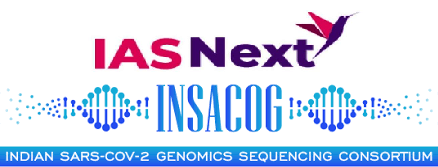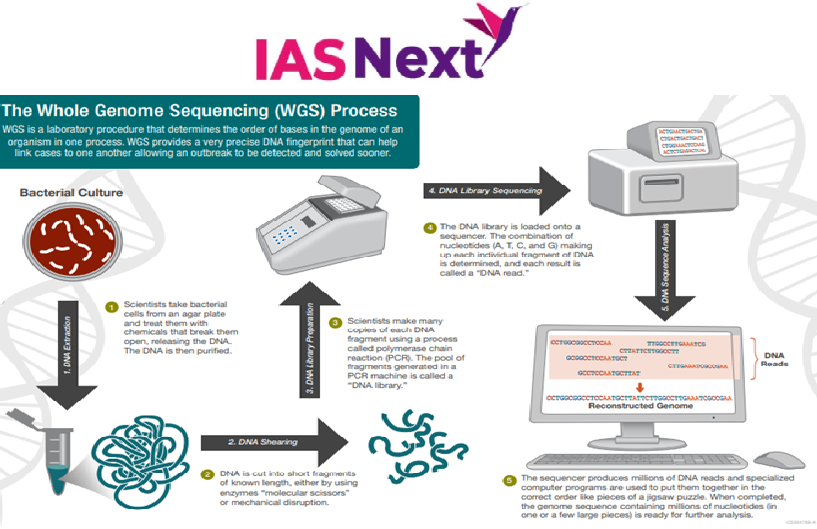CURRENT AFFAIRS
Get the most updated and recent current affair content on Padhaikaro.com
Indian SARS-CoV-2 Consortium on Genomics (INSACOG)
- IAS NEXT, Lucknow
- 29, Oct 2021

INSACOG led team has traced a total of 108 mutations of the SARS-Cov-2, which include four novel mutations in India, in the wastewater samples collected from Pune city between December 2020 and April 2021.
How important is it for countries to continuously monitor variants and understand the emerging genomic epidemiology?
Genomic sequencing is a crucial part of every country’s approach for detecting and containing outbreaks of other pathogens.
- In India and around the world, the rapid spread of SARS-CoV-2 and the emergence of new variants made clear how important it is to be able to collect viral samples, sequence them and share that information nationally and regionally so that there is a clear, accurate real-time picture of how a pandemic is moving, how the pathogen is changing and the effectiveness of mitigation and countermeasure strategies that save lives.
Purpose of sequencing:
- The main purpose of sequencing is surveillance. It helps to get the true picture of prevailing variants, emerging variants (like delta) and those causing reinfection.
- WHO has stressed on the fact that data of sequencing should be submitted to open-access platforms like GISAID, so that a sequence done in one part of the world can be looked at by the global scientific community.
What is genome sequencing?
- A genome is an organism’s complete set of DNA, including all of its genes. Genomics is an interdisciplinary field of science focusing on the structure, function, evolution, mapping, and editing of genomes.
- Genomics also involves the sequencing and analysis of genomes through uses of high throughput DNA sequencing.
- Advances in genomics have triggered a revolution in discovery-based research and systems biology to facilitate understanding of even the most complex biological systems such as the brain.
Need for genome sequencing:
- Mapping the diversity of India’s genetic pool will lay the bedrock of personalised medicine and put it on the global map.
- Considering the diversity of population in our country, and the disease burden of complex disorders, including diabetes, mental health, etc., once we have a genetic basis, it may be possible to take action before the onset of a disease.
About Indian SARS-CoV-2 Consortium on Genomics (INSACOG):
- The Indian SARS-CoV-2 Genomics Consortium (INSACOG) is jointly initiated by the Union Ministry of Health and Family Welfare, and Department of Biotechnology (DBT) with Council for Scientific & Industrial Research (CSIR) and Indian Council of Medical Research (ICMR).
- It is a consortium of 28 National Laboratories to monitor the genomic variations in the SARS-CoV-2.
- It carries out whole genome sequencing of SARS-CoV-2 virus across the nation, aiding in understanding the spread and evolution of the virus.
- INSACOG also aims to focus on sequencing of clinical samples to understand the disease dynamics and severity.
